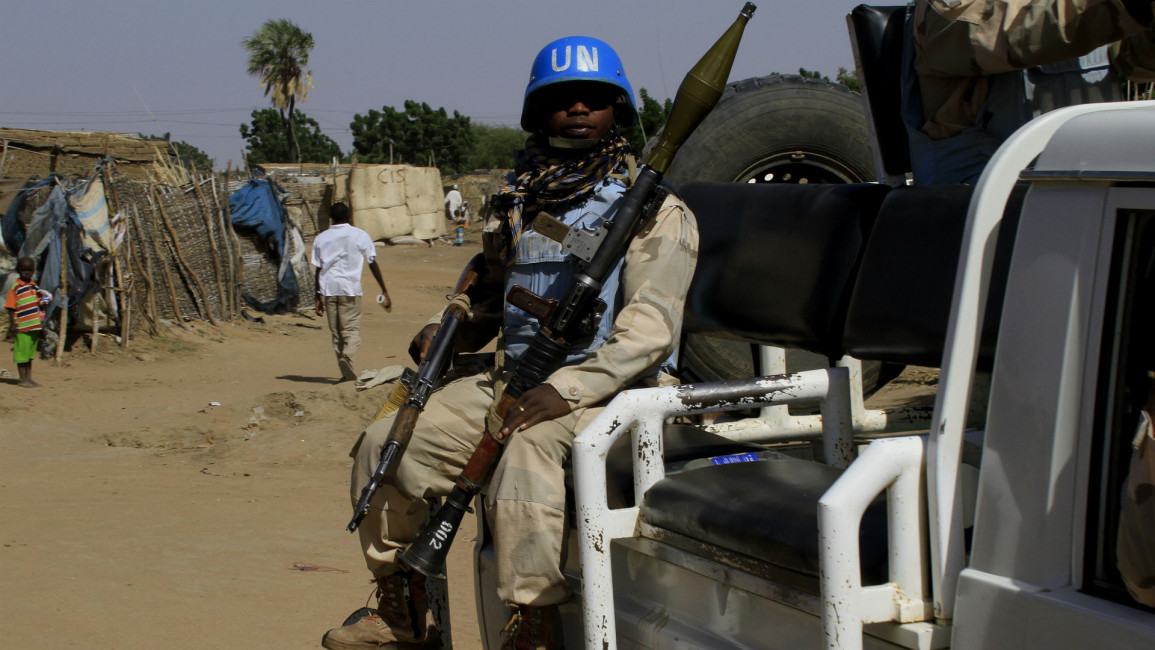UN chief condemns Sudan's decision to expel senior officials
Sudan's government is stepping up pressure on the United Nations as Secretary-General Ban Ki-moon prepares recommendations on the future of a joint U.N.-African Union peacekeeping force in the country's violence-wracked Darfur region.
In the government's latest move, President Omar al-Bashir ordered the expulsion of two top U.N. officials, a decision condemned by the secretary-general Thursday as "unacceptable." The U.N. chief called on Sudan's government to reverse its decision immediately.
So did U.S. Ambassador Samantha Power who tweeted Friday: "Sudan gov continuing to show true colors: expels 2 UN officials while violence continues. Shameful decision should be reversed."
It is unclear clear why the UN officials were asked to leave.
The expulsions follow al-Bashir's call on Nov. 30 for a "clear programme" to end the joint mission in Darfur, known as UNAMID, which was established in 2007 to protect civilians caught in the conflict between the rebels and the government in 2003.
The United Nations says 300,000 people have died in the conflict and more than two million have fled their homes.
Recently, al-Bashir also ordered UNAMID's human rights office to close and refused to allow the force to make a second visit to the north Darfur village of Tabit to investigate allegations that more than 200 women were raped there by forces allied to the government.
Their initial visit found no evidence, but there were allegations that local people were intimidated by the presence of Sudanese soldiers.
Power, the U.S. envoy, also tweeted: "2.4M ppl in Darfur need aid & protection. Sudan government is wilfully obstructing UN & NGO efforts to save lives."
Second highest budget
U.N. spokesman Stephane Dujarric said Friday that the secretary-general is working on the strategic review of UNAMID ordered by the Security Council on Aug. 27.
The joint peacekeeping mission — with nearly 16,000 military, over 3,000 police, and more than 4,000 civilian staff — has the second-highest budget of all U.N. peacekeeping forces, at more than $1.3 billion a year. But it has been criticized for underperformance.
"It has the largest gap between the resources that are put into the mission and the effect it has had on the ground," Britain's U.N. ambassador, Mark Lyall Grant, told reporters in April.
In another sign of discontent, Ban said he was "deeply troubled" by the findings in a U.N. report released in late October that UNAMID took an "unduly conservative" approach to publicly sharing information about crimes against civilians and peacekeepers.
Al-Bashir's expulsion order this week was against top officials from the country team — U.N. Resident Coordinator Ali Al-Za'tari, a Jordanian, and the U.N. Development Program's Country Director Yvonne Helle, from the Netherlands, Dujarric said.
Sudan defiant
In a statement Sudan’s foreign ministry expressed ‘regret’ at Ban’s comments and stressed that the government was not targeting the UN or its staffers.
It added that the move was in line with Sudan’s sovereign rights as outlined by article (9) of Vienna Convention, warning that the government will repeat such expulsions if necessary against any diplomat or international official who exceeds his or her mandate.
Sudan’s decision to expel UN personnel comes amid a worsening security climate and dire humanitarian crisis in the Sudanese region, with ramped-up hostilities between government forces and armed groups.



